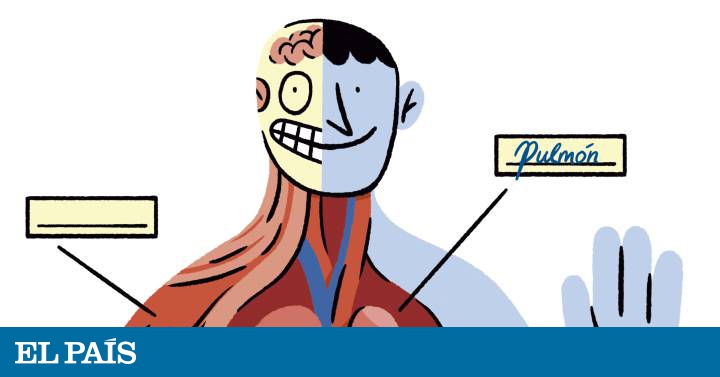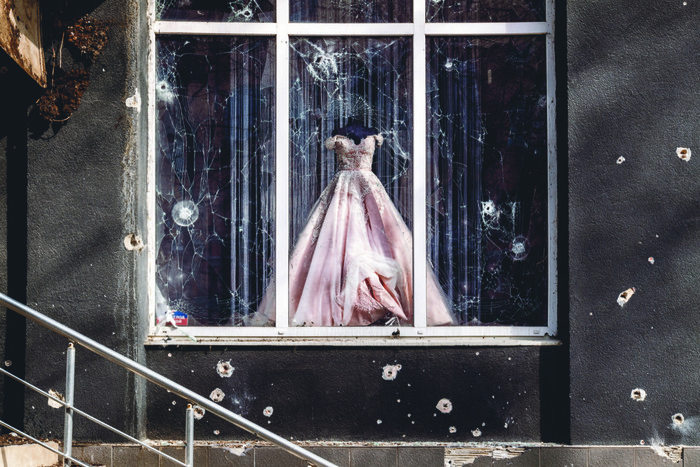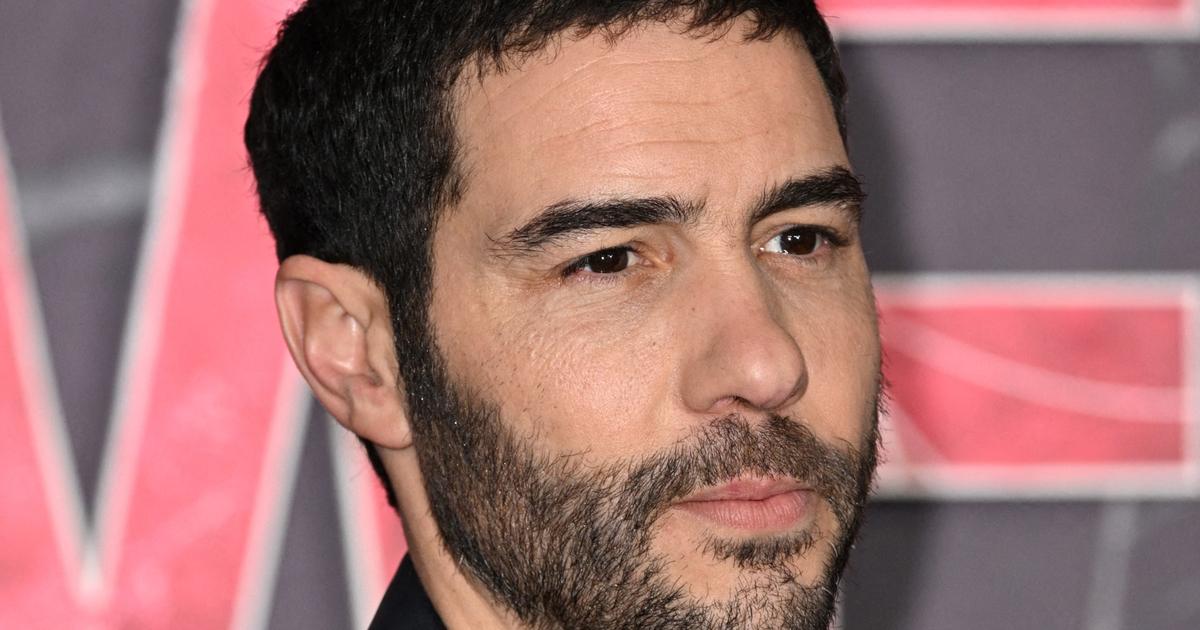It's hard not to get to the interview with Bill Bryson feeling weird. With all that he explains in his last book about the parts of our body and their functioning, emphasizing the true miracle that this whistles, you don't stop studying, listening, feeling, scratching and being aware of the precarious amalgam that makes you up. Making time in front of the writer's house in London, next to a large park in Fulham, one finds himself circling with some anguish how he walks from Meissner's corpuscles, if he suffers from Anton Babinski's syndrome — in which the patient stays blind but refuses to believe it — or how on earth the 12-meter epididymis fit in the scrotal sac, which is already a prodigy.
Bryson has written an essay, The Human Body, Guide for Occupants (RBA, 2020, translation by Francisco J. Ramos Mena) that combines the fascination - and even joy - for the extraordinary, wonderful and robust of our design with the apprehension before everything that can fail (unfortunately very much). In its pages, the skin, skeleton, lungs, head, guts, mouth, diseases are reviewed (in Cotard's delirium the victim believes she is dead and there is no way to convince her otherwise) or pain, and there is a dissection. As it is the house brand, the American author (Des Moines, Iowa, 1951), British adoption, season this amazing trip to the body with curious data (during our life we take 200 million steps and segregate 90,000 liters of saliva! we have to eat in a day what a crocodile needs in a month), priceless anecdotes, great patients (the woman who scratched her head from scratching her head), sensational historical figures in her wisdom, self-denial, cruelty or stupidity (there it is Falopio, famous for his tubes, who was handed a living criminal to sacrifice in order to study him, or William Harvey, so desperate to find corpses to analyze that he dissected his father and sister), and a lot of humor. One cannot stop laughing at the description of the tremendous extraction of live stones that was perpetrated by the diarist Samuel Pepys in 1658 (Pepys laughed nothing), the explanation of the difficulties inherent in the study of flatulence or windiness, or the Imagine the illustrious Desmond Morris clad in Camilo José Cela and noting a human ejaculation of almost one meter (the “average range distance”, Bryson points out, is between 18 and 20 centimeters).
"There are almost 8,000 things that can kill us, according to the WHO, and it is a fact that we escape from all but one"
The writer is very cordial although somewhat tired (he is at home) and smiles when he is told that reading his book makes one strangely aware of how many anatomical elements (muscles, tendons, bones) are put into operation when given - How we do— the hand. “The hand is a very specialized member, part of what has made us what we are, civilized human beings; It allows you to throw things, protect us and have a lot of sensitivity; I am especially fascinated by the doll, so beautiful, a magnificent piece of engineering. ”
The actual conversation begins with Raquel Welch, which they called the Body for nothing. We are many who still relate white blood cells with her. Bryson, curious by nature, raises an eyebrow in the kitchen of his London residence (he has another in the countryside in Hampshire). How? Does the writer not remember Richard Fleischer's film in which a miniature submarine whose most notable member of the crew is Welch gets a comma in the bloodstream? The submersible was attacked by white blood cells, gummy entities, and the actress escaped diving in the blood wrapped in neoprene ... “It's true, it's a remarkable movie, I remember when it premiered, in 1966, but I never saw it, so That says I would like to see it. ” It was easier to be in favor of Rachel Welch than of white blood cells. Bryson laughs willingly, “no doubt, but white blood cells are very interesting and immunologists consider some of them, lymphocytes, the smartest cells in the whole body: for their ability to identify the intruders that invade us and decide how to destroy them. ” The writer speaks with admiration of the T lymphocytes, "the elite, those of special operations of the immune system", which are created in the thymus, one of those organs, he emphasizes, that many of us do not even know we have, such as the aforementioned epididymis ( men), or the pylorus.
The reading of The human body, guide for occupants causes an alarming sense of fragility. "Yes and no; On the one hand, the body is indeed fragile, you can die in an instant, hit by a bus, at any time. But, on the other, the body is always taking care of us and we are very resistant, and that despite the bad behavior we do, the little exercise we do and the amount of garbage we eat. Actually, since there are almost 8,000 things that can kill us, according to a detailed list of diseases and problems of the World Health Organization, it is a fact that we escape from all but one, which is not bad. ” Bryson adds that we should not waste time distressing our expiration. "We are nothing and this happens quickly and when it ends it ends, sometimes sooner than later, but life is a miracle and you have to appreciate the splendor of being alive." Do you think there is something later? "It's not the issue, that's a matter of faith and not science."
What body part is your favorite? Bryson doesn't even think about it (and worth the phrase). "Brain. The most extraordinary object in the universe and that looks like tofu or pudding. It is fundamentally what makes us different from other creatures. Our heart, our lungs, are not different from those of a cat or a horse, but the brain, the brain is us. ” One of the things that his book gives to think about is that strange tenacity, which Bryson emphasizes, with which our components unite to form an entity and a consciousness. "It seems extraordinary, a miracle, more than 37 billion independent cells come together and create a human being able to think, love and reflect on their own identity." On this trip to the body, have you found something that explains consciousness? Bryson is slow to answer. “No, definitely. Much smarter and more prepared people have asked themselves that question and there is no consensus. In any case, the question is philosophical, not anatomical. We feel consciousness, but how to define it? Physiologically we do not know what it is to think. ” But we seem to be more than our parts, those 59 elements - at a cost of 110,000 euros per human being, as noted in the book - and seven billion billions of atoms that make us up. “Yes, however, what I have tried is to understand and explain how we work, not what makes us work. Understand how we are assembled, what each of our organs does. Actually, I was personally ashamed of not knowing how my body works. ” Bryson has had medical experience: he worked for two years in the seventies in a psychiatric hospital outside London.
What body part is your favorite? "Brain. The most extraordinary object in the universe and what looks like tofu or pudding "
"
There is little sex in the book. “Well there is a chapter entitled The pudendas parts and another about conception and birth. But it is true that sex is more social than anatomical and addressing issues such as sex and desire would have taken me elsewhere, to treat love, for example. Here I talk about how the body works, not how it feels. ” Speaking of operation, he points out that if someone suggested that men have an area whose erogenous potential was not fully exploited, there is no doubt that huge resources would be allocated immediately to investigate the matter. On the other hand, we have been going around the G-spot for years, how women have it (or not)… “It seems incredible that even today many things of the female anatomy, like the case of G-Point, are not known with certainty ", Bryson reflects, adding that" male ignorance of female anatomy seems quite striking, especially if one considers how interested men are in knowing it in other aspects. " According to the author, a survey of a thousand men about the intimate parts of the woman revealed that half did not even know how to find the vagina in a sketch.
Diseases
In a chapter of the book ( When things get ugly: diseases ) the current issue of outbreaks and epidemics is addressed. Bryson, who claims that our main enemy has been smallpox, but infecting only humans "chose the wrong enemy", points out that there is a great potential danger out there and that it is really extraordinary that there are no planetary misfortunes more often , although he points out that the flu is much more dangerous than people think and kills between 30,000 and 40,000 people a year in the US alone. He says that the reason we have not had, for the moment, a really devastating epidemic like the Spanish flu of 1918 (tens of millions of deaths) is not because we have been especially attentive but "because we have been lucky." What do you think of coronavirus? "I could say very little, neither I nor anyone, we do not know yet enough and it will change a lot."
From the historical part of his book it follows that for centuries it was best to stay away from doctors ... "It's true," laughs the author, "what was done, for example, before the use of anesthesia was frightening". What is the most incredible of the body? “The amount of things he does without realizing it, everything that makes you stay alive. All that is working inside you for decades and that most of the time does not fail. Everything that happens in there is fascinating and we don't stop to think for a moment. Perhaps the heart is the most notable example, pumping day and night accurately. ” The heart, to which you say you don't give a damn about our love life. "It's a big question because we have identified that organ with feeling, but we have also connected the liver with courage."
From the point of view of the body, is it easier to be a man or a woman? "I do not know. They give birth, which seems to me the most painful act of nature. On the other hand, men tend to have shorter and more violent lives. However, women suffer more autoimmune diseases than men ... ” 60% of men are practically bald at fifty. "And the only known cure for baldness is castration," says Bryson.
There are connections between the body, “this warm and wobbly meat,” as he says, and another of his great themes, Shakespeare, to which he dedicated one of his best books ( Shakespeare, RBA, 2009), beyond Hamlet and the skull. "Shakespeare was very perceptive with the body and especially with emotions, I am amazed at his ability to explain what it is to be human." You can also relate his latest book with At Home, a brief history of private life (RBA, 2011) , for the section on the danger of falling down the stairs. Bryson laughs again. “The sense of humor is a good tool for a writer, I would say one of the best. It keeps the reader hooked. ”
Bryson has a physically air like Ray Bradbury, which he says he has not read but whose childhood in Illinois resembles his own from Iowa, recounted in Adventures and Misadventures of the Centella Boy (RBA, 2019) . "There is something universal in a happy childhood," he says. “It's lucky to have it, and I had it. My mother, Mary McGuire Bryson, had a disposition to the happiness that I have inherited. I consider it a luck and a privilege to be alive. Something really magical. With The Human Body, guide for occupants, I wanted to communicate that, we must be grateful to be alive, because then we will be dead forever. ” From the comparison with another great science fiction author, Isaac Asimov, who tried like him to understand everything and explain it pleasantly ( Science Guide, The Universe, One Hundred Basic Questions about Science, Universal History ...), Brysson ( A brief history of almost everything, RBA) says that it flatters him a lot, but "he was smarter." Well, you seem to know everything. "Oh, no, paraphrasing Woody Allen, I have failed with poetry and jazz."
Travel and journalism
Bill Bryson says he had a great time working on the book. “Especially with research, the best thing to write is to document yourself, read, interview people. The hard thing is really the next thing, get down to work. In recent times it has marked distance with its ascription to the genre of travel literature. “I never thought of being just a travel writer, I went there. I've always seen myself as a journalist, one of the great things about being one is being able to go from one thing to another, change the subject, and continually learn from what you do. ” Now travel much less. "I'm getting older, I expect another grandson for May, and I already have ten." Where would you like to go? "I have never been to Russia or India, and I would like to return to Japan."
"What I have tried is to understand and explain how we work, not what makes us work. Actually, I was personally ashamed of not knowing how my body works"
In one of his unforgettable books, In the Antipodes (RBA, 2010), he showed, with great sense of humor, how dangerous Australia can be. “There are so many deadly things, and now there have been fires. It seems that God does not want people to live in Australia. ” Bryson doesn't relate much to other writers, in fact, he didn't even know that Colin Thubron, the author of En Siberia , lives very close to his home. "Really? I admire Thubron a lot, and once he was very kind to me, speaking well of a book of mine when I started. ” Bryson has a good opinion of the film that was made in 2015 from another of his most famous travel books, the hilarious A walk through the forest (RBA, 2014) —the film was directed by Ken Kwapis and was called in Spain Great friends— , about his experience on the Appalachian route, a journey that speaks of black bears, pumas and even Confederate General Stonewall Jackson. "I liked that he produced and starred Robert Redford, who makes very intelligent films." Wouldn't you have preferred to be incarnated instead of Redford Burt Reynolds? Bryson lets out a laugh. "Nerd". For the things that explains the Appalachian Trail one would feel safer with the protagonist of Deliverance. “It is certainly a wonderful but dangerous area, there are cases of murders, even doubles, on the road; In any case, the walk there is one of the most beautiful things I've done. ”
Bill Bryson says that despite his connection with Britain he has always felt American. "I am in a strange position because I also have a British passport and my wife is British, more than half of my life is here, but I think I will always be a foreigner and it does not bother me." The Brexit? “It has been a very big disappointment. I have been here for forty years and I have seen how the country was doing much better and that has had a lot to do with the European Union. Locking up now is a shame, and a mistake. ”
Would you say curiosity is your greatest virtue? “Yes, I make a living thanks to her. It is what keeps you alive. And it seems to me one of the main characteristics of the human species. ”
Everything is over (even this interview) and the last chapter of The Human Body is dedicated to death. "The main cause of death of our time is the lifestyle," Bryson reflects in his peculiar style. “Why we are not able to continue regenerating infinitely is something not only that seems unfair to us but we do not understand. The case is that every day 160,000 people die and 60 million a year. ” With that rather unfriendly consideration and the detail that our ashes weigh five kilos, Bryson says goodbye, but not before recommending a walk through the nearby Brompton Cemetery. It would seem somewhat lucid, but when one follows his advice he not only finds that it is an evocative place full of history, full of crows and squirrels and notable graves, but is very close to the Chelsea stadium. A metaphorical memory of how splendor and twilight, glory and dust, shake hands in our bodies.
Body reflections
"It's not easy to imagine how armpit hair can enrich human existence."
“The most amazing thing about the brain is how unnecessary it is. To survive on Earth we don't need to know how to write music or be able to philosophize. ”
"The chin is exclusive to humans and nobody knows why we have it."
"The heart has no time for distractions."
"Giraffes sometimes have gallbladder and sometimes they don't."
"The kidneys process 180 liters of water every day, the equivalent of a full bath to overflowing."
“Death is unmistakable. Living people seem alive, and more so inside than outside. ”
"It is unknown what exactly yawns do for us."
"Most of the best technology that exists on Earth is within us."
"The truth is that sex is not necessary and many agencies have given up on it."
"The prostate produces the seminal fluid of man during adulthood and great anxiety in his later years."
“Actually, it is quite difficult to commit suicide. We are designed not to die. ”
"Think of how many pairs of shoes you have used in your entire life and you will begin to get an idea of the durability of your cartilage."
"Sperm are the astronauts of human biology, the only cells designed to leave the body and explore other worlds."
"The placenta is the worst understood organ of the human body."
"Nothing in our life is more necessary and worse received than pain."
"Running is the only thing we do superlatively well."
"Dying is the last thing our body wants to do."
"The food stays inside women almost a whole day more than men."
“Cancer is nothing more than our own body doing everything possible to kill us. It is suicide without our permission. ”
"Sleep is the most mysterious thing we do."
"It was pretty while it lasted, wasn't it?"









/cloudfront-eu-central-1.images.arcpublishing.com/prisa/F5GRV7HUTZACRHBAVHSBBMKKFM.jpg)